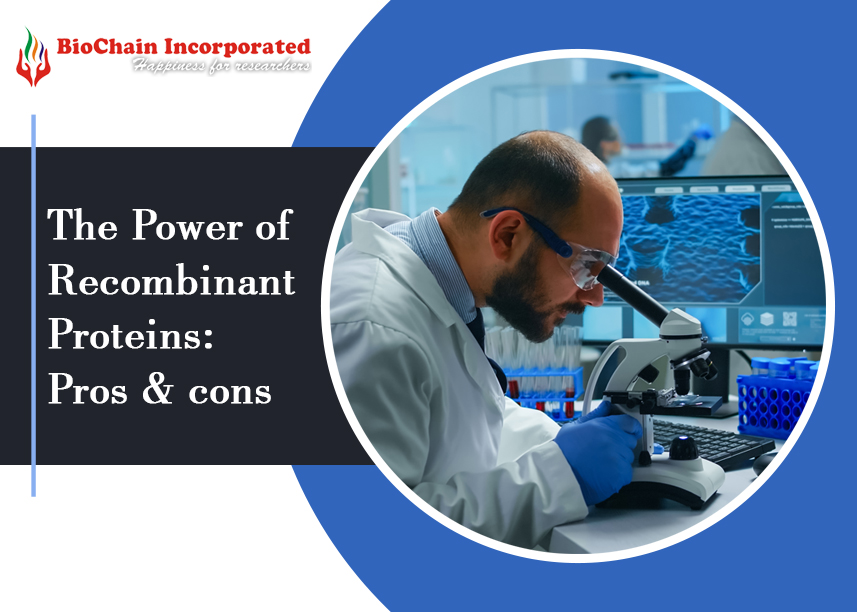Explore the Advantages & Disadvantages of Recombinant Proteins
Recombinant proteins have undoubtedly transformed the landscape of biotechnology. Explore all its trade-offs that drive research and therapeutic advancements.
In the realm of biotechnology and pharmaceuticals, recombinant proteins have revolutionized research and medical advancements. These proteins, engineered through genetic manipulation, offer a plethora of advantages and challenges. In this informative blog, we delve into the world of recombinant proteins, shedding light on their potential and limitations. Discover the pros and cons of these marvels, brought to you by recombinant protein suppliers in India, including the renowned Biochain.
Pros of Recombinant Proteins
-
Purity and Consistency: Recombinant proteins are produced under controlled laboratory conditions, ensuring high purity and consistency in their structure and function. This reliability makes them valuable tools for research and therapeutic applications.
-
Customizability: The genetic manipulation involved in producing recombinant proteins allows scientists to tailor them to specific needs. This customizability offers flexibility in designing proteins with desired characteristics and functions.
-
Cost-Effective Production: Once the genetic sequence is established, recombinant proteins can be produced at scale, making them cost-effective compared to extracting proteins from natural sources.
-
Safety and Reduced Contamination: Recombinant proteins eliminate the risk of contamination from pathogens that may be present in natural sources. This safety aspect is crucial for therapeutic applications.
-
Greater Availability: Recombinant proteins have overcome limitations in sourcing from natural organisms, making them widely accessible to researchers and pharmaceutical companies.
Cons of Recombinant Proteins
-
Post-Translational Modifications: Some proteins require specific post-translational modifications to function correctly. Recombinant proteins may not always undergo these modifications, leading to functional differences from their natural counterparts.
-
Protein Misfolding: During production, recombinant proteins can misfold or aggregate, impacting their structure and function. This challenge requires careful optimization of expression systems.
-
Expression Complexity: Certain proteins are challenging to express in recombinant systems due to their complexity. Achieving high yields and correct folding can be difficult for such proteins.
-
Biological Activity Variability: While recombinant proteins aim to replicate natural proteins, variations may occur in their biological activity, affecting research outcomes and therapeutic efficacy.
-
Regulatory Challenges: The production and use of recombinant proteins in clinical settings may face regulatory hurdles, necessitating compliance with rigorous safety and quality standards.
Biochain: Leading Recombinant Protein Supplier in India
Among the prominent recombinant protein suppliers in India, Biochain stands out as a reliable and innovative source. With years of expertise in genetic engineering and biotechnology, Biochain offers a diverse range of high-quality recombinant proteins for various research and medical applications. Their commitment to excellence ensures scientists and pharmaceuticalcompanies have access to premium products for groundbreaking discoveries.



.png)

.png)


.png)
.png)
.png)
.png)
.png)